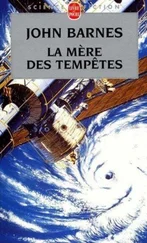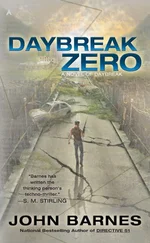Everyone was nodding vigorously, and Cam said, “All right, first what I think, then what Arnie thinks, then Dr. Weisbrod will tell you why it doesn’t matter who’s right. As for me, here’s what I see from the extensive Daybreak decrypts, especially once we found the messages of the il’Alb cell in eastern Afghanistan that ran the Bell group in DC, the rebel raid on Sentani airport, and the seizure of Air Force Two. I see elaborate and sophisticated development of communications, information sharing, and so forth between the global Daybreak organization and il’Alb; at the least, the cell that put together the Air Force Two attack knew when Daybreak would be. To me it just looks too big and complex to be run by anything smaller than a national government. We also have clear-cut interpenetration between il’Alb and ISI, which implicates at least a part of the Pakistani government, and some overlaps with Saudi and Syrian intelligence.
“As I interpret this, we have been attacked by at least one foreign power—probably Pakistan, possibly Saudi Arabia—with a direct assault on the highest levels of our government, and widespread general sabotage carried out by a few fifth columnists and many dupes. Therefore, we are in the opening stages of a military-terror campaign aimed to bring down the United States and probably the West in general. The attack on Air Force Two was supported by domestic saboteurs, not unlike the way an invasion might be supported by rebels or a resistance movement. We are at war with a single, coherent enemy who has hit us with a carefully planned and executed deliberate military attack. We just don’t know who it is, yet.
“And with that, Arnie is going to spin out one of the wildest stories I have ever heard in my life, but I do believe you all have the right to hear it before you reject it.”
Arnie Yang nodded. “I feel handicapped by not being able to whip out the charts and graphs and give you all homework, so let me just explain it this way. Cameron’s interpretation of the material was only possible because he was able to pick out a few hundred needles in a haystack that had, oh, around six billion strands of hay. And the reason he could pick them out was because he was looking for them, and because he had search algorithms that were provided by my methods. So, in effect, he found his conclusion by looking through my telescope. I just want to tell you what my telescope has to say.
“If the whole thing had been coordinated, led, put together by some single guiding intelligence, there are at least fifty different indices and measures that would show an idea pump in the system—and they don’t.”
“Review ‘idea pump’ for us new people?” Colonel Green asked.
“Something that just repeats itself over and over, pumping an idea out into the conversation. Like a TV commercial, or a sacred text, or a politician staying on message, or a spambot. If there’s an idea pump in a communication system, it’s highly detectable, by lots of methods: If we trace chains of repeated ideas backward, they all go back to a small group of places; the same ideas keep coming back as if no discussion had happened; the same ideas come disproportionately out of one small part of the system; whenever conflicting ideas run into each other, the one from the idea pump wins by sheer volume of repetition. There’re lots of ways to measure and count all that.
“Well, not only is there no idea pump in Daybreak, Daybreak has an elaborate, localized system of ideas that first paralyzes idea pumps and then takes them over. Daybreak captures whatever gets near it; for example, I can show you a few thousand small businesses that thought the Daybreak network was going to be their channel into the green market, and instead they became suppliers and safe houses for Daybreakers, often going broke while doing Daybreak stuff that didn’t make them any money. One reason why coustajam stalled out in the last couple years and didn’t take over pop music, like a lot of people thought it would, is that so many of their most talented composers, performers, and bands were putting all their time and effort into Daybreak.
“So I think if an outside force like il’Alb were exerting central control over Daybreak, there’d be at least some evidence that there was a center or some control. I think Daybreak itself was a giant system artifact, a message that doesn’t originate in any one place in the system but is produced by the system as a whole. And I think it was one with a genius for recruiting and suborning other ideas and organizations it ran into.”
“Uh, hold it, a message that recruits and takes things over?”
Arnie shrugged. “Ever had a friend go through a religious conversion? Or develop an addiction? Or get hired into an organization with a tight, obsessive culture? It’s still your friend but don’t you feel, sometimes, that you’re not really arguing with him, but with his Catholicism? Or ‘that’s not really her, that’s her alcoholism’? Or ‘I miss my friend, I wish IBMGUY would shut up and let him talk’? Complex ideas contain instructions on what to do for contingencies—like computer games. Ever notice that the game seemed to be playing against you, or leading you in some direction? Ever known anyone to be led into a new life by Jesus, or have his life changed by a book? Ideas do things all the time; we try to pretend they don’t because when they do, they make us nervous.
“I know Cam thinks a thought requires a thinker, but that’s just wrong. The really big, complex thoughts—like, oh, say, a movie, or a religion, or a philosophy—are much too big to fit into one head, and yet they are thought all the time. In fact I’d say nothing big enough to be important comes from an individual; nobody ever made up a worldview all by himself on a desert island. Important ideas all grow and form in thousands or millions of heads, often over more than one lifetime.
“But you don’t have to go that far with me to see what happened with Daybreak.
“Daybreak was more or less like a cluster of obsessive self-reinforcing thoughts that kept recopying and refining and becoming sharper and clearer while getting more detached from reality, in much the same way that, oh, for example, some of you might be unable to stop wondering whether a coworker doesn’t like you, or a persistent high-school memory might come back to you over and over. That can happen just as easily—maybe more easily—in a group in conversation, as it can in a mind in private thought. Haven’t we all been in a conversation that turned into an idée fixe, where no matter what you tried to change the subject to, everyone ended up talking about the same thing?”
“Marijuana helps induce that effect,” Edwards pointed out.
“It does, to some extent; so does ecstasy, either the drug or the religious experience. There’s a great play where a lunatic came to think he was God because he realized every time he prayed, he was talking to himself. After a while the voice of the conversation can sound like the meaning of the universe. As long as it’s only for a few hours after midnight in a dorm room or a bar, it didn’t matter very much.
“But the modern world improved everything, or at least made it more effective. Internet came along and made it possible for a conversation to go on like that 24-7-365, with thousands instead of a dozen participants, and a lot of the meditation and hypnosis and biofeedback tactics for focusing attention found their way out of Eastern philosophy, and a lot of the tactics for making an idea compelling found their way out of Western advertising, and one bright day, you had a great big idea that was running on so many brains and computers all the time that it was beginning to think itself. Unfortunately, it was an idea that’s been around since Rousseau or earlier—‘civilized self-hatred.’ The modern world created a perfect environment for the growth and flourishing of a general feeling that the modern world had to go.”
Читать дальше












